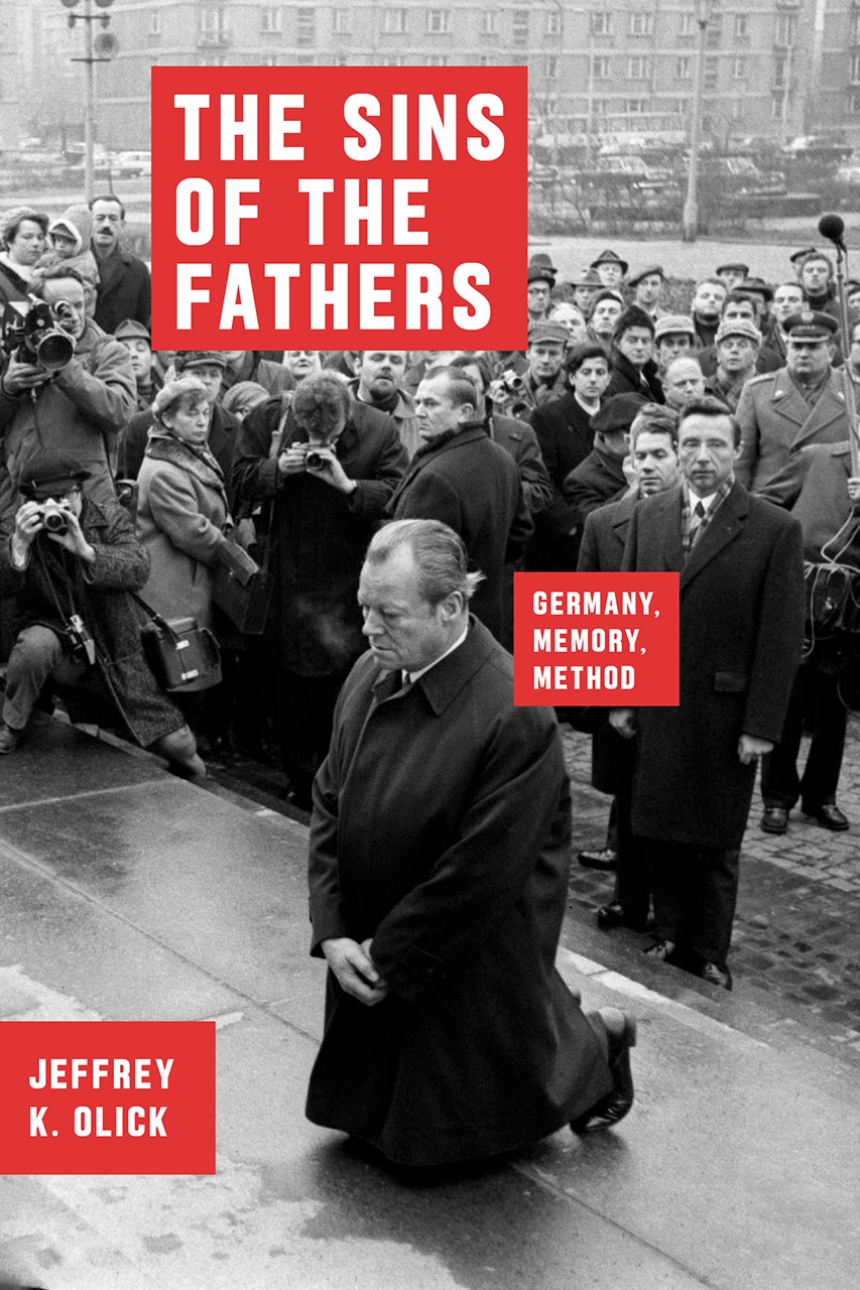The Sins of the Fathers
Germany, Memory, Method
National identity and political legitimacy always involve a delicate balance between remembering and forgetting. All nations have elements in their past that they would prefer to pass over—the catalog of failures, injustices, and horrors committed in the name of nations, if fully acknowledged, could create significant problems for a country trying to move on and take action in the present. Yet denial and forgetting carry costs as well.
Nowhere has this precarious balance been more potent, or important, than in the Federal Republic of Germany, where the devastation and atrocities of two world wars have weighed heavily in virtually every moment and aspect of political life. The Sins of the Fathers confronts that difficulty head-on, exploring the variety of ways that Germany’s leaders since 1949 have attempted to meet this challenge, with a particular focus on how those approaches have changed over time. Jeffrey K. Olick asserts that other nations are looking to Germany as an example of how a society can confront a dark past—casting Germany as our model of difficult collective memory.
Nowhere has this precarious balance been more potent, or important, than in the Federal Republic of Germany, where the devastation and atrocities of two world wars have weighed heavily in virtually every moment and aspect of political life. The Sins of the Fathers confronts that difficulty head-on, exploring the variety of ways that Germany’s leaders since 1949 have attempted to meet this challenge, with a particular focus on how those approaches have changed over time. Jeffrey K. Olick asserts that other nations are looking to Germany as an example of how a society can confront a dark past—casting Germany as our model of difficult collective memory.
496 pages | 16 halftones, 2 tables | 6 x 9 | © 2016
Chicago Studies in Practices of Meaning
History: European History
Sociology: Collective Behavior, Mass Communication, Individual, State and Society, Social History, Theory and Sociology of Knowledge
Reviews
Table of Contents
Preface
Part One: Introduction
1 Placing Memory in Germany
2 The Sociology of Collective Memory
3 Prologues: The Origins of West German Memory
Part Two: The Reliable Nation
4 Bonn Is Not Weimar
5 Expiation and Explanation
6 Germany in the West
7 The Return of the Repressed
8 The Reliable Nation
Part Three: The Moral Nation
9 Seeds of Change
10 The Grand Coalition and the Wider World
11 Social-Liberal Guilt
12 The Moral Nation
Part Four: The Normal Nation
13 West Germany’s Normal Problems
14 The New Conservatism
15 The Politics of History
16 Beyond Bitburg
17 The Normal Nation
Part Five: Conclusions
18 Epilogues: Berlin Is Not Bonn
19 History, Memory, and Temporality
Appendix
References
Index
Part One: Introduction
1 Placing Memory in Germany
2 The Sociology of Collective Memory
3 Prologues: The Origins of West German Memory
Part Two: The Reliable Nation
4 Bonn Is Not Weimar
5 Expiation and Explanation
6 Germany in the West
7 The Return of the Repressed
8 The Reliable Nation
Part Three: The Moral Nation
9 Seeds of Change
10 The Grand Coalition and the Wider World
11 Social-Liberal Guilt
12 The Moral Nation
Part Four: The Normal Nation
13 West Germany’s Normal Problems
14 The New Conservatism
15 The Politics of History
16 Beyond Bitburg
17 The Normal Nation
Part Five: Conclusions
18 Epilogues: Berlin Is Not Bonn
19 History, Memory, and Temporality
Appendix
References
Index
